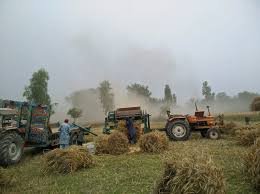
The Sindh government has notified the Sindh Agricultural Income Tax Rules 2025, following the unanimous passage of the Sindh Agricultural Income Tax Bill earlier this year.
The move comes in line with commitments made under the International Monetary Fund (IMF) program, amid earlier concerns and reluctance from provincial lawmakers.
According to the notification, every owner of agricultural land liable to pay tax in respect of any agricultural income year must register with the Sindh Revenue Board (SRB). The Finance Department has also introduced registration and return forms, including AIT-01 for individuals and companies. Taxpayers will be required to file their returns electronically by the prescribed due dates, with companies due by December 31 and other taxpayers by September 30.
The rules stipulate that annual agricultural income up to Rs600,000 will remain exempt, while the maximum tax rate on income above Rs5.6 million will be 45 per cent. A progressive super tax has also been introduced, applying up to 10pc on income exceeding Rs500 million annually. Corporate farming has been brought into the tax net, with small companies taxed at 20pc and larger ones at 29pc. Livestock, however, remains exempt, and the advance tax on land cultivation has been abolished.
Chief Minister Syed Murad Ali Shah, while addressing the assembly during the passage of the bill in February, criticized the federal government for bypassing provinces in IMF negotiations. He maintained that Sindh already had agricultural taxation for decades, and accused the Federal Board of Revenue (FBR) of “misleading” the IMF while failing to meet its own tax collection targets. The SRB, he noted, would be solely responsible for collecting the new agricultural income tax.
The new rules also provide detailed procedures for registration, filing, assessment, appeals, and record-keeping. Owners are required to maintain records for five years in Urdu, Sindhi, or English. Returns will be treated as self-assessment, though tax officers retain the power to issue notices in case of non-compliance. Income may be accounted for on either a cash or accrual basis, depending on the nature of ownership.
The Sindh Agricultural Income Tax Act 2025 will take effect from January 1, 2025, marking what provincial authorities describe as a “progressive step” toward broadening the tax net while safeguarding food security and modernizing revenue collection. – ER Report
